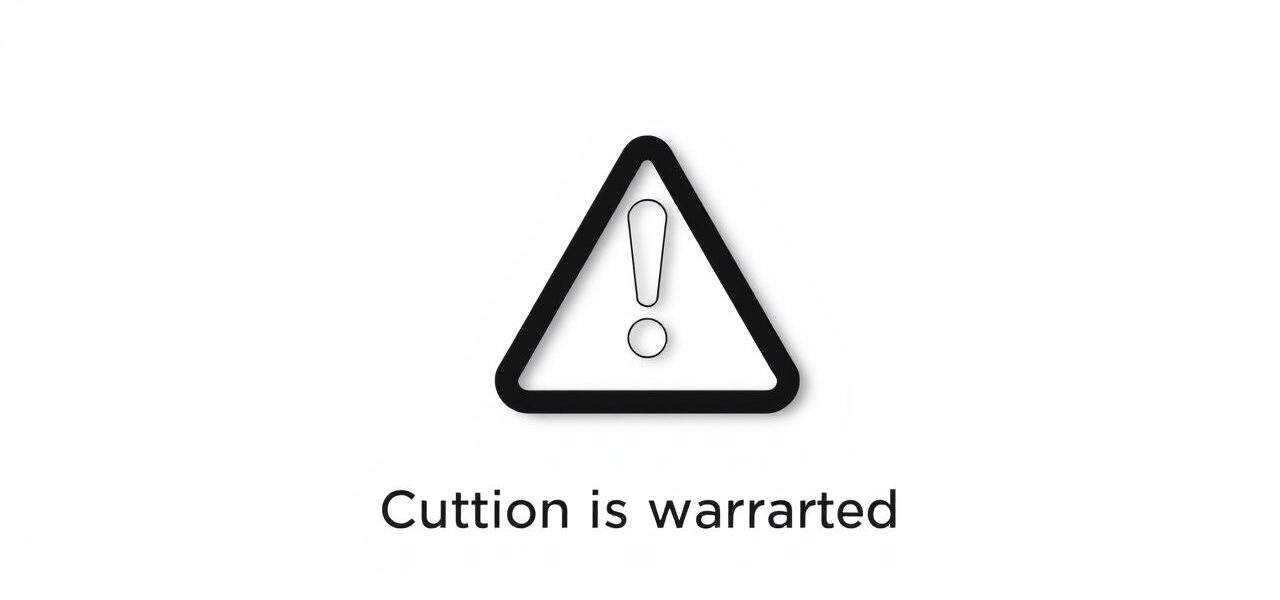In both formal and informal contexts, the phrase caution is warranted is often used when someone wants to advise carefulness or warn about a possible danger, risk, or uncertainty. This phrase appears in news reports, academic discussions, scientific research, legal documentation, and even casual advice. It implies that the situation at hand deserves careful attention or a restrained approach. Understanding the full meaning of this expression, how to use it, and when it is most appropriate can enhance your ability to communicate more effectively in English, especially in sensitive or uncertain situations.
Understanding the Phrase Caution Is Warranted
Definition and Context
The phrase caution is warranted essentially means that being cautious is justified or appropriate. The word caution refers to care taken to avoid danger or mistakes. Warranted means something is reasonable, deserved, or backed by good reasons. So, when you say that caution is warranted, you are expressing that there is a valid reason to be careful.
Breaking It Down
- Caution: The act of being careful or wary, particularly to avoid trouble or risk.
- Warranted: Justified or officially approved, suggesting that a certain action is supported by logic, evidence, or authority.
When combined, these words convey the idea that the situation calls for a careful approach. This phrase often appears when outcomes are uncertain, data is inconclusive, or there is potential harm involved in taking action without deliberation.
Examples of Caution Is Warranted in Sentences
To better understand how to use this phrase in real-life communication, let’s look at a few practical examples:
- Given the volatile nature of the stock market, caution is warranted before making any large investments.
- While early results are promising, caution is warranted until the full trial is complete.
- Caution is warranted when traveling in remote areas, especially during the rainy season.
- Experts say that although inflation is currently under control, caution is warranted regarding future economic indicators.
In each of these examples, the speaker or writer recommends a careful, measured approach due to potential risks or uncertainties.
Why Caution Is Warranted Matters in Communication
Encourages Thoughtfulness
Using this phrase helps signal that not every situation calls for bold or immediate action. It suggests that the matter should be considered thoughtfully and thoroughly. In environments where decisions must be carefully weighed such as healthcare, law, engineering, or finance this phrase helps to moderate expectations and urges responsible behavior.
Adds Professional Tone
Caution is warranted also sounds professional, making it ideal for formal writing or speaking. Whether you are writing an academic paper or discussing policy in a business meeting, using this phrase adds a tone of seriousness and prudence.
Promotes Safety and Prevention
In situations where safety or well-being is at stake, this phrase encourages preventive action. It helps avoid reckless decisions and minimizes potential damage by urging individuals to proceed with care.
Synonyms and Similar Expressions
If you want to avoid repetition or need alternative ways to say caution is warranted, here are some expressions that convey a similar meaning:
- It is advisable to proceed carefully.
- A cautious approach is recommended.
- There is a need for prudence.
- Due care should be taken.
- Be vigilant under these circumstances.
- One should err on the side of caution.
These alternatives may vary slightly in tone or formality but serve the same purpose: encouraging awareness of risk and the need to act with care.
Common Situations Where Caution Is Warranted Applies
Medical and Scientific Research
When clinical studies produce new findings, especially those that are not yet peer-reviewed or widely accepted, researchers often say caution is warranted. This reminds readers or listeners not to draw premature conclusions from early data.
Economic Forecasts
Economists and analysts use this phrase when markets are unstable or global conditions are shifting. Even if data looks good at first glance, they may still urge that caution is warranted to prepare for unexpected downturns.
Policy and Law
Government bodies or legal advisors might use this phrase to signal that a new law or regulation should not be rushed without full consideration of its consequences. It helps support balanced and responsible decision-making.
Environmental Issues
In discussions about climate change or environmental conservation, experts use caution is warranted to emphasize the importance of careful planning before introducing potentially disruptive technologies or policies.
Tips for Using the Phrase Effectively
- Use it when facts are unclear or when potential risk is present.
- Pair it with supporting reasons or data to strengthen your statement.
- Choose it over more emotional language to maintain neutrality and professionalism.
- Avoid overusing the phrase in casual conversations unless the situation truly requires serious attention.
For instance, instead of saying We should panic about this situation, it is far more effective and rational to say Caution is warranted until we gather more information.
The phrase caution is warranted is more than just a formal expression it is a useful tool for careful, mindful communication. It helps convey the importance of restraint, responsibility, and awareness of uncertainty. Whether you are writing a report, delivering a presentation, or simply offering thoughtful advice, using this phrase can reflect maturity and insight. Remember to support it with context and evidence, and use it when you truly want to encourage others to pause, reflect, and act carefully. Mastering expressions like caution is warranted can enhance both your spoken and written English, especially in professional and academic environments where clear, respectful caution is highly valued.
